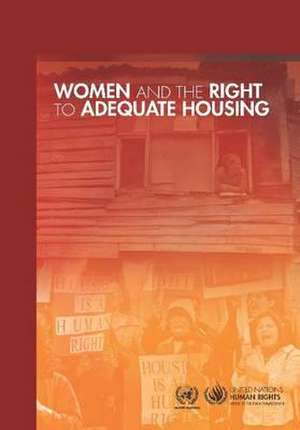Women and the Right to Adequate Housing
Autor United Nationsen Limba Engleză Paperback – 7 ian 2013
Preț: 80.02 lei
Preț vechi: 103.45 lei
-23% Nou
15.32€ • 15.93$ • 12.83£
Carte indisponibilă temporar
Specificații
ISBN-10: 9211541921
Pagini: 1
Dimensiuni: 152 x 300 x 7 mm
Greutate: 0 kg
Editura: United Nations
Descriere
Despite the right to adequate housing being recognised in international human rights law, over a billion people live in precarious conditions - many of them women. This publication aims to shed some light on the main underlying reasons for their plight and offer guidance on measures to prevent and eradicate discrimination against women with respect to housing rights. The first chapter describes the international legal and policy frameworks for the implementation of women's right to adequate housing - human rights treaties, the principle of non-discrimination and the progressive realisation of all rights. Chapter II outlines the main underlying causes - from discriminatory statutory laws to customary laws and practices, and lack of access to legal and other remedies. Finally, Chapter III elaborates on selected issues such as forced evictions, degraded living conditions, and cultural and religious recognition of women's rights.
